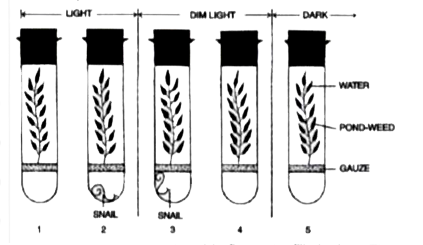Which animal would not survive, if there were no ponds of water?
(a) Fasciola
(b) Ascaris
(c) Entamoeba
(d) Taenia
The correct Answer is:A
To determine which animal would not survive if there were no ponds of water, we will analyze each option provided in the question.
1. Identify the Animals:
- We have four options to consider: Fasciola (liver fluke), Ascaris (roundworm), Entamoeba, and Taenia (tapeworm).
2. Analyze Fasciola (Liver Fluke):
- Fasciola is known to infect sheep, cattle, and humans.
- Its life cycle involves a primary host (snails) that lives in water, where the larval development occurs.
- Therefore, Fasciola relies on water bodies for its life cycle and would not survive without ponds of water.
3. Analyze Ascaris (Roundworm):
- Ascaris primarily affects humans and is transmitted through ingesting infected food.
- Its life cycle does not require water; it goes from soil to human and back to soil.
- Thus, Ascaris can survive without ponds of water.
4. Analyze Entamoeba:
- Entamoeba infects humans through food and water, causing amoebic dysentery.
- However, its life cycle can occur in humans without the need for water bodies for larval development.
- Therefore, Entamoeba can also survive without ponds of water.
5. Analyze Taenia (Tapeworm):
- Taenia is a flatworm that infects pigs and humans, causing Taeniasis.
- Its life cycle involves pigs and does not require water for larval development.
- Hence, Taenia can survive without ponds of water.
6. Conclusion:
- After analyzing all options, we conclude that Fasciola is the only animal that would not survive if there were no ponds of water, as it requires water for its larval development.
Final Answer:
Fasciola (liver fluke) would not survive if there were no ponds of water.
---
- We have four options to consider: Fasciola (liver fluke), Ascaris (roundworm), Entamoeba, and Taenia (tapeworm).
- Fasciola is known to infect sheep, cattle, and humans.
- Its life cycle involves a primary host (snails) that lives in water, where the larval development occurs.
- Therefore, Fasciola relies on water bodies for its life cycle and would not survive without ponds of water.
- Ascaris primarily affects humans and is transmitted through ingesting infected food.
- Its life cycle does not require water; it goes from soil to human and back to soil.
- Thus, Ascaris can survive without ponds of water.
- Entamoeba infects humans through food and water, causing amoebic dysentery.
- However, its life cycle can occur in humans without the need for water bodies for larval development.
- Therefore, Entamoeba can also survive without ponds of water.
- Taenia is a flatworm that infects pigs and humans, causing Taeniasis.
- Its life cycle involves pigs and does not require water for larval development.
- Hence, Taenia can survive without ponds of water.
- After analyzing all options, we conclude that Fasciola is the only animal that would not survive if there were no ponds of water, as it requires water for its larval development.
Fasciola (liver fluke) would not survive if there were no ponds of water.
Topper's Solved these Questions
Similar Questions
How do fishes and aquatic animals survive in winters when the pond gets covered with thick ice?
View SolutionThe diagram given below is a set up to demonstrate an experiment

Pond-weed was placed in five water-filled tubes. The experiment was set-up as shown in the diagram. The tubes were then left for 24 hours
The tube in which the plant would survive for the shortest length of time is
View SolutionHow the fishes can survive in the extreme winter, when ponds and lakes are frozen?
View SolutionIn which season would you expect a higher proportion of water vapour in air ?
View SolutionAn animal cell placed in pure water will
View SolutionA farmer has enough food to feed 20 animals in his cattle for 6 days. How long would the food last if there were 10 more animals in his cattle?
View SolutionWhen we say ' survival of the fittest ' , does it mean that
(a) those which are fit only survive
(b) those that survive are called fit? Comment.
View SolutionWhen we say ' survival of the fittest ' , does it mean that
(a) those which are fit only survive
(b) those that survive are called fit? Comment.
View SolutionMany fresh water animals can not survive in marine environment. Explain.
View SolutionMany fresh water. animals can not survive in a marine environment. Explain.
View Solution
